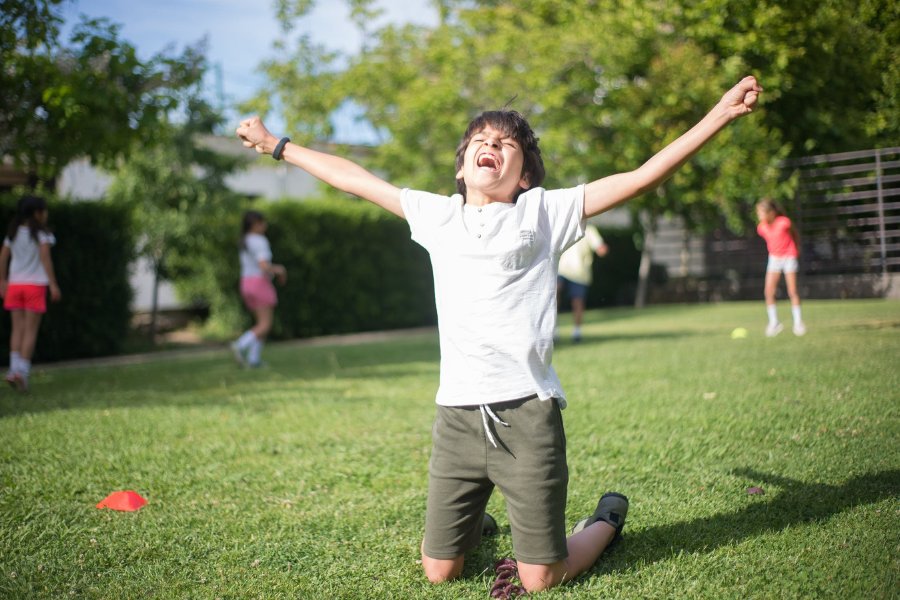
Want Your Kid To Be A High Performer? Do These 6 Things
12 Dec 2022 | 4 min Read
Manisha Pradhan
Author | 1053 Articles
Every parent wants their kid to be a high performer and be successful in life. And in that quest, the mistake most parents make is pushing their children and enrolling them for various activities, hustling the tired kids after school to hours of tuition and after school activities one after the other.
The question is, is that the mantra for your kid to be a high performer? The answer is no, all that stress of running around not only leaves kids with no time to relax and play outdoors but also results in them growing up to be anxious, and sometimes even depressed adults rather than high performers.
Here’s what you can do if you want your kid to be a high performer.
What Does A High Performer Mean?
These are some of the characteristics of a child who is a high performer:
- Curiosity
- A vivid imagination
- Grasps quickly
- Can reason well
- Is intense
- Shows concern for others
- Is compassionate
- Has good leadership skills
- Is creative
- Has good decision-making skills
- Is expressive and communicates well
- Has problem-solving skills
7 Things To Do If You Want Your Kid To Be A High Performer
Every child is capable of performing highly if parents just follow a few simple tips. Here are 7 ways you can do to help your kid to be a high performer.
1. Value effort over intelligence
When a child excels in something like academics or sports or any competition if they are told that they achieved it because they are intelligent, which is not wrong but that will create a fixed mindset. Instead, if you tell appreciate their effort to succeed that will help them grow and teach them that when they put in the effort they can succeed in everything.

2. Teach Them To Embrace Failure
The most important lesson you can give your child is to tell them that success and failure are inseparable. This prepares them for any kind of failure and kids develop an openness to learning from failure and get over the fear of failure. They also learn to embrace failure positively and not quit something because of the fear of failing in it and learn to take risks.
3. Respect Their Opinions
When a child is interested in something, respect their opinion. When they are given the freedom and opportunity to follow their interests children take interest in learning and perform better. For example, you may want your child to learn some sports but his/her interest may be in music, don’t force them to do something they don’t want to. Let them explore and learn what they like. It makes them feel heard, boosts their confidence and makes them interested in learning.
4. Expose Them To Different Experiences
Exposing children to different experiences in life can broaden their horizons. When children are exposed to experiences they get interested in doing more things as they learn more, and understand more from those experiences.
It need not be just travelling to places on fancy holidays, but as simple as taking them to the museum, public libraries, music shows, and art galleries, you can even take them to your office to see how people work, take them to factories, movies, banks to show how things run, or just something as simple as lying down under the stars and learning about them.
5. Make Learning Fun
Children learn faster when they are having fun, there are plenty of games that can teach them and make them think games like Monopoly for example which need thinking about the strategy to win the game builds their strategic thinking skills, and games like Monster Math help them build math skills, my Field teaches them about team building etc.
Similarly some games and activities can be played to build learning for different subjects. Children develop thinking abilities and skills that help them to succeed in their future, through play because it allows them to experiment to find solutions, and strategies and learn through trial and error.
6. Give Them Chores
A child who is involved in daily household chores grows up to be independent and responsible, has higher self-esteem and is confident. While doing chores children learn many important skills, for example when a child is given the chore to fold their clothes it not only helps their hand-eye coordination but also is great for learning math skills or when a child is given the chore of setting the table for the family meal, he/she it strengthens their executive functioning skills.
A


Suggestions offered by doctors on BabyChakra are of advisory nature i.e., for educational and informational purposes only. Content posted on, created for, or compiled by BabyChakra is not intended or designed to replace your doctor's independent judgment about any symptom, condition, or the appropriateness or risks of a procedure or treatment for a given person.
